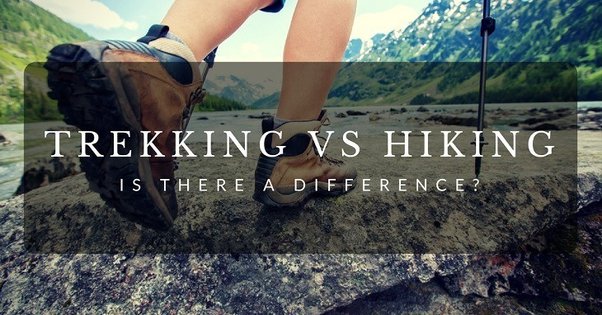For outdoor enthusiasts, the terms “hiking” and “trekking” are often used interchangeably, blurring the lines between two distinct activities. As we embark on this exploration, let’s unravel the differences between hiking and trekking, shedding light on the unique experiences each offers. Beyond semantics, understanding these distinctions enhances our appreciation for the great outdoors.
Hiking vs. Trekking: Clearing the Confusion
While the digital realm may treat them as synonyms, hiking and trekking are, in fact, two separate activities with distinct characteristics.

Hiking:
Hiking involves a long and energetic walk in a natural environment, typically along established hiking trails or footpaths. It is a day or overnight activity, offering a chance to connect with nature without the commitment of an extended journey.
Trekking:
Trekking, on the other hand, is a more rigorous and sustained activity. It entails a long and vigorous hike in a wild, natural environment that extends over multiple days. Unlike hiking, trekking may lead you off established trails, exploring untouched wilderness and providing a deeper immersion into nature.
Understanding the Health Benefits:
Both hiking and trekking contribute significantly to mental and physical well-being. Let’s delve into the numerous health benefits associated with these outdoor pursuits:
Reduced Risk of Heart Disease and Improved Blood Pressure:
A study by the CDC recommends walking at least an hour a day, five days a week, which can halve the risk of stroke. Regular hiking and trekking improve heart health and blood pressure, promoting cardiovascular well-being.

Enhanced Overall Fitness:
Engaging in these activities has transformative effects on muscles, building strength in the thighs, lower legs, hips, and hamstrings. Both hiking and trekking are weight-bearing exercises, contributing to increased bone density. Trekking, especially when carrying a heavy backpack, also enhances core strength, leading to improved overall fitness.
Mental Health Benefits:
Escaping the confines of daily life and immersing oneself in nature aids in stress reduction, alleviating symptoms of depression and anxiety. The outdoors demands attention, redirecting focus from worries and fostering mental well-being.
Calorie Burn and Weight Management:
Hiking burns between 440 and 550 calories per hour, making it an effective means of weight management and muscle toning. The calorie expenditure during an overnight hike or a week-long trek further contributes to weight loss and enhanced physical fitness. Creativity Boost: Beyond physical and mental advantages, spending time outdoors during hiking and trekking activities can stimulate creativity. Exposure to sunlight, which provides essential Vitamin D, enhances attention span, focus, and problem-solving skills. Vitamin D also supports bone and teeth health, boosts the immune system, and contributes to cardiovascular well-being.
Conclusion:
As we distinguish between hiking and trekking, it becomes evident that each activity offers a unique set of experiences and challenges. Beyond the terminology, the health benefits associated with both underline the importance of outdoor pursuits in our overall well-being. Whether you embark on a day hike along well-trodden paths or undertake an extended trek into the untouched wilderness, the key lies in appreciating the distinct offerings of each activity and relishing the myriad benefits they bring to our physical and mental health. So, lace up your boots, pack your backpack, and embrace the great outdoors, knowing that whether you’re hiking or trekking, you’re on a path to a healthier, more enriched life.
